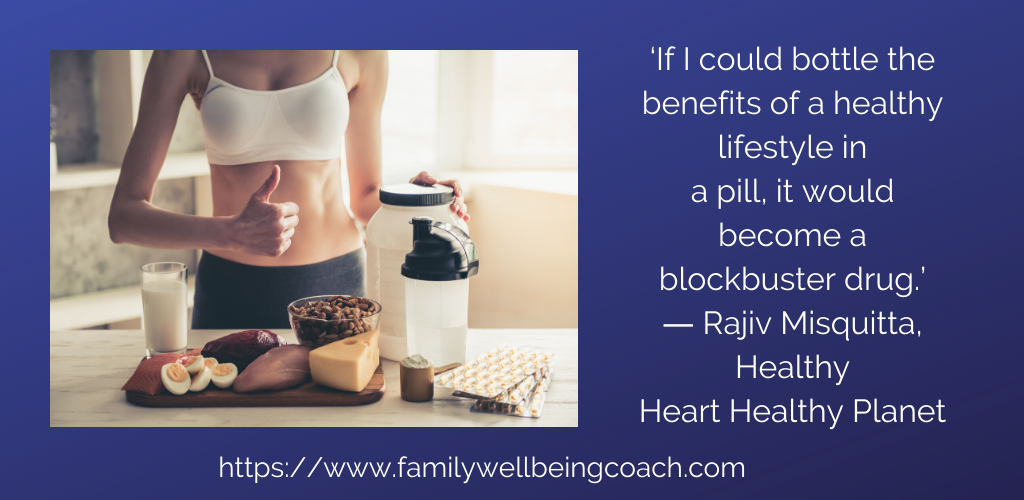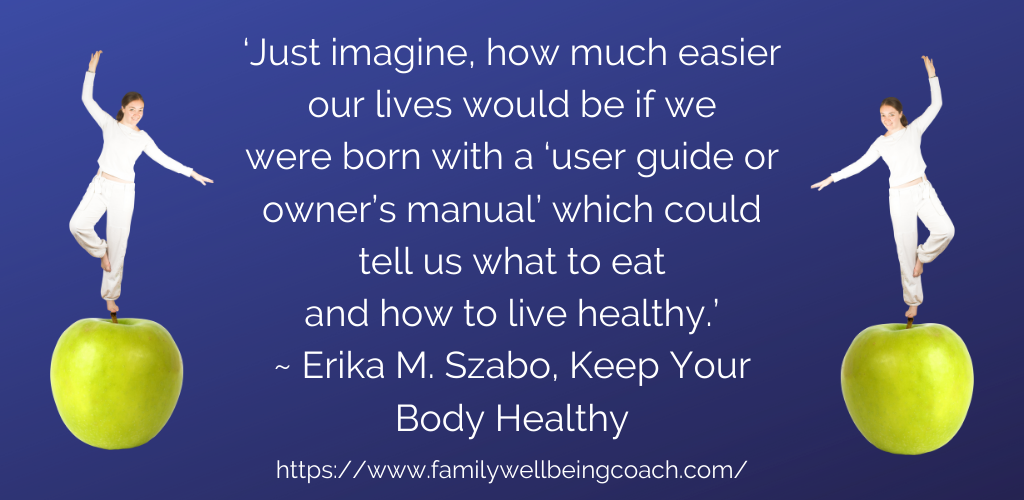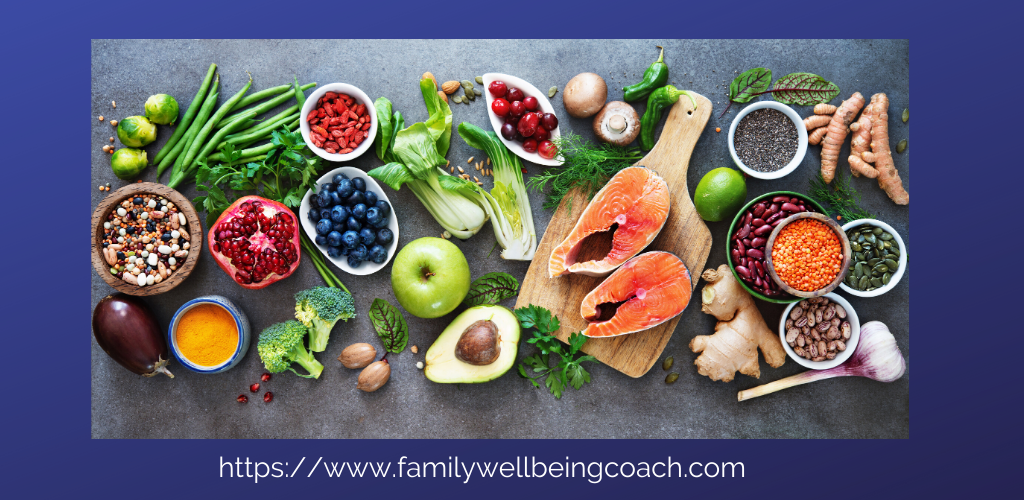A Healthy Diet isn’t about Restrictions and is Not Complicated

Following a healthy diet is really not complicated and has nothing to do with restrictions or deprivation. Unfortunately, the food we eat is not always healthy as a very busy lifestyle can cause us to buy for convenience. We tend to rush into the store and buy ready-cooked or pre-chopped food and there is very little in the form of nutrients left by the time the food lands on the table.
Are you Feeding your Body or Your Apetite?
Most of us genuinely believe that we’re feeding our bodies when we eat, but much of the time we’re only feeding our appetites! The nutrient content in the fruit, vegetables and packaged food found on your supermarket shelves can vary considerably and, once it’s hung about in your fridge for some time, and then cooked, it can be even lower.
Talking about cooking, it's a good idea to look at this article that explains the best cooking methods.
Here are a few examples:
- An orange may provide from 60mg of vitamin C to 180mg (some provide none at all)
- A hundred grams of wheat germ (about 3 cups) provides from 2.1 mg to 14 mg of vitamin E
- A large carrot (100gram) can provide from 70 to 18,500iu of vitamin A
- Vitamin B5 found in whole wheat flour from 0.3 to3.3mg
- Spinach can contain 0.1 to 158mg of iron
- Lettuce can contain from 0.1 to 16.9mg of manganese.
What makes a Healthy Diet

While it is important for you to eat healthy food such as fruit and vegetables, the quality is paramount in order to supply the nutrients that your body needs. For this reason you should look at the guidelines below.
Choosing and Storing the Food that You Eat:
- Buy locally-grown produce in season
- Store foods in cool, dark places to delay oxidation and read the article about food storage tips to ensure that your food is delicious and nutritious
- Avoid refined oils stored on supermarket shelves for weeks and exposed to light as they are already damaged when you buy them
- Consume food soon after purchase
- Eat organic, where possible, as it has higher levels of vitamins and minerals and other anti-oxidants. This is important as antioxidants prevent disease and help you stay young
- Eat as much unrefined food as possible, as manufacturing practices cause the loss of vitamins and essential fats
- Cook at low temperatures, as 20% to 70% of the nutrients can be lost in cooking
- Frozen is better than canned, if fresh is not available. Canning is done at high temperatures which decrease the nutrient content
- Store grains (flour and cereals) in the freezer, if you have space, in order to protect them from rancidity, insects and moulds
- Alternatively, glass containers on a cool and dry shelf will do
- Remember that nuts contain oil and should be stored in the freezer to stop them from going rancid.
Promote Natural Health with Super-foods

Super-foods are mostly plant-based foods but also include some fish and dairy. These foods are thought to be nutritionally dense and therefore good for your health.
Super Foods
The foods listed below are considered to be super-foods; however, there are no set criteria for determining if a food falls into this category:
- Blueberries
- Salmon
- Kale
- Acai berries
- Avocados
- Ancient grains such as quinoa
- Beets
- Nuts
- Coconut products
- Sweet potatoes and squash
- Beans.
Is the Term ‘Super-Food’ a Marketing Tool
Many people claim that use of the term ‘super-food’ is mainly a marketing tool used by manufacturers to shape the public's perception of their products.
However, consuming foods that are packed with nutrients is clearly a good idea, so why not make them part of your healthy diet.
Remember that the term ‘healthy diet’ refers to consuming a variety of nutritious foods in the right quantities and at the right time.
Eat the Best Quality Food in the Right Quantities
Eating the best quality food in the right quantities is the main ingredient when considering food and health. Don't always believe what you read on a packet though as there's a massive controversy over food safety.

Unfortunately, many people make the wrong choices when it comes to a healthy diet, and, even more alarming, many foods on supermarket shelves are woefully short on nutrients.
If you want more information about this, you can read the surprising facts about balanced diet and health.
Your body is made up of about 63% water, 22% protein, 13% fat and 2% vitamins and minerals. It therefore requires a balanced diet of vitamins, minerals essential fats and complex carbohydrates to stay in peak condition.
A Healthy Diet Shouldn’t be loaded with Sugar, Fat and Additives

The food industry conditions us to eat foods laden with sugar, fat, additives and preservatives. Foods are refined in order to make them last longer, but that also makes them deficient in nutrients.
The Food Industry is Linked to Profit
Always remember that the food industry is, understandably, linked to profit and you should train yourself to read labels and make your own decisions on nutrition.
My aim here is to give you the basic information on food and health so that you can make the correct choices, together with details of where you can dig deeper if you want to know more.
Healthy Diet and Fat
About 40% of modern diet-ideal is 20%.
There are two types of fat, i.e. saturated fat and unsaturated fat. Saturated fat is found in meat and dairy products and is not essential in the diet. In fact, you should keep the consumption of saturated fat to a minimum.
Unsaturated fats are far healthier and are split into two types. These are monounsaturated fats, of which olive oil is a rich source, and which should still be used sparingly, and polyunsaturated fats which are found in seeds and nuts and are an essential part of food and health.
Healthy Diet and Protein
12% of modern diet-ideal is 15%.
There are 25 different forms of protein and they are the building blocks of the body. Both the quality of the protein (determined by the balance of the amino acids) and the quantity that you eat are important as they are essential for growth and the repair of body tissue. They are also important for the manufacture of hormones, enzymes, antibodies and neurotransmitters, and help transport substances around the body.
The best quality protein foods, in terms of amino-acid balance, are eggs, quinoa, meat, fish and seed vegetables such as peas, beans and lentils.
Healthy Diet and Carbohydrate
Carbohydrates are the main fuel for the body and there are two types:
Fast releasing being sugar, honey, malt, sweets and most refined foods. These give a sudden burst of energy followed by a slump.
Slow releasing being whole grains, vegetables and fresh fruit. These contain more complex carbohydrates together with fibre, which help to slow down the release of sugar.
Glycaemic Index and a Healthy Diet
The glycaemic index (GI) is a measure that ranks foods according to their effect on your blood sugar levels.
The following are the three GI ratings:
- Low: 55 or less
- Medium: 56–69
- High: 70 or more
Foods with a low glycaemic index should be your preferred choice, as they are slowly digested and absorbed, causing a slower and smaller rise in blood-sugar levels.
On the other hand, foods with a high glycaemic index should be limited, since they are quickly digested and absorbed. This results in a rapid rise and fall of blood sugar levels.
Foods are assigned a GI value only if they contain carbohydrates, so foods such as beef, chicken, fish and eggs won’t be found on a glycaemic index list.
Ice Cream has a Low Glycaemic Index

While a low GI diet can help stabilise your blood sugar levels you shouldn’t become too hooked on it as it has a number of drawbacks.
The GI of Foods can be Difficult to Calculate
The GI of foods can be difficult to calculate for the following reasons:
- GI does not provide a complete nutritional picture of a particular food
- There are many unhealthy foods with a low GI (ice cream and custard)
- Foods are consumed as part of a larger meal, making the GI of a meal difficult to predict
- GI does not take into account the number of carbs you eat, which is an important factor in determining the impact on your blood-sugar levels.
Glycaemic Index doesn't Always Reflect How Healthy a Food is
So the glycaemic index does not always reflect how healthy a food is. However, it has a number of potential health benefits, including reducing blood sugar levels, aiding weight loss and lowering your risks of heart disease and type 2 diabetes.
The main problem is that, when considering glycaemic index and a healthy diet, it’s important to also consider the carbohydrate content and glycaemic load of a food.










